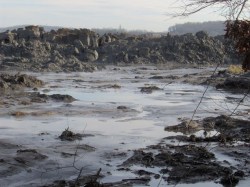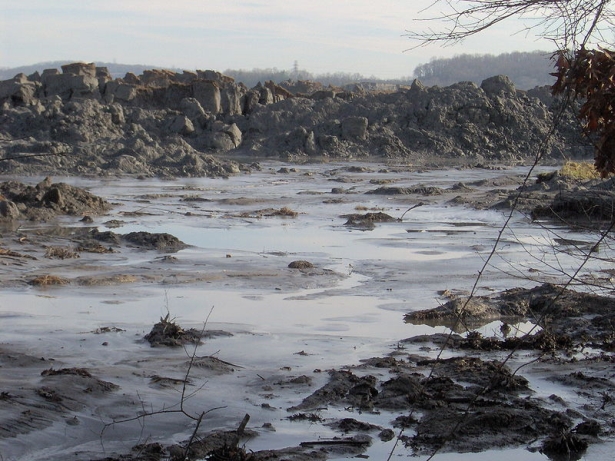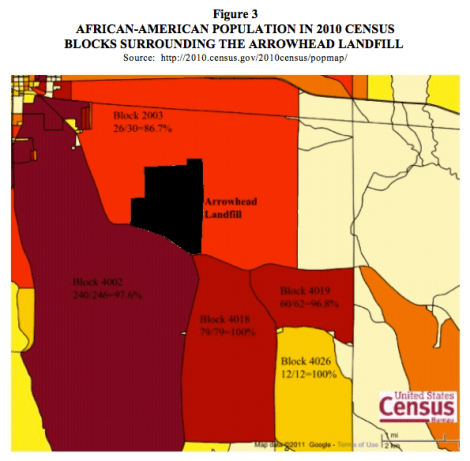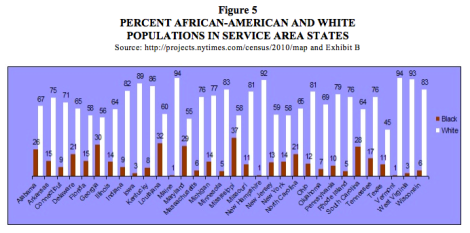
Coal ash from the Tennessee spill.
One of the core tenets of the environmental justice movement is that poorer communities and communities of color disproportionately bear the negative impacts of a pollution-rife economy. Power plants and water treatment centers aren’t built in affluent areas.
Now, the Environmental Protection Agency (EPA) is being asked to decide if the location of a landfill is a violation of a predominantly black community’s civil rights.
In 2011, the Alabama Department of Environmental Management (DEM) renewed the permit for a landfill in Uniontown, Ala. The Arrowhead landfill is authorized to receive more solid waste per day than any other landfill in the state — waste that includes coal ash, toxic residue from coal-burning power plants. Four million tons of ash from Tennessee’s 2008 Kingston power plant spill ended up at Arrowhead.
This January, residents filed a complaint with the EPA, arguing that the renewal of the permit was a discriminatory violation of the Civil Rights Act. From a report at the Huffington Post:
The Uniontown facility has been the focus of a long and contentious battle between the mostly black residents living nearby and the developers of the landfill, which opened for receipt of municipal waste and other trash in 2007. The facility is currently permitted to receive up to 15,000 daily tons of municipal, industrial, commercial and construction waste — as well as “special waste” like coal ash — from nearly three dozen states.
Taken in aggregate, the civil rights complaint argues, the population of that expansive service area is predominantly white, while the population bordering the landfill is nearly 100 percent African American.
Here are the demographics of the area around the landfill. (Images below are from the complaint [PDF].)
Over 30 states dump waste at Arrowhead. The racial makeup of those states is largely white.
If the EPA’s Office of Civil Rights finds that the complaint is warranted, their response is limited. The Alabama DEM could lose federal funding and be ordered to lessen the landfill’s impact on the community. A ruling is expected at the end of the year.





